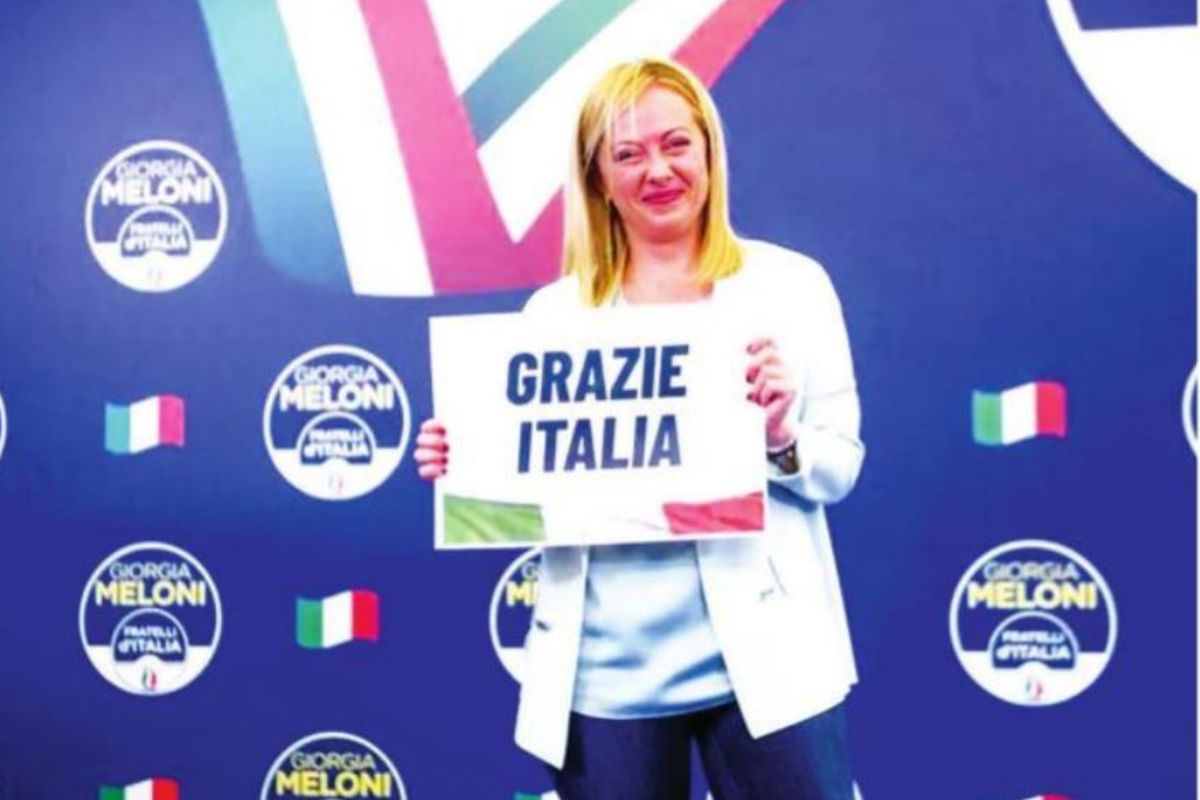Liberals the world over have expressed serious concern about Giorgia Maloni’s seismic victory in the Italian elections, her expected elevation as the first far-right PM of the country since World War Two and its long-term implications for Italy as well as the rest of Europe.
The far-right ideologies blended with neo-fascism are fast spreading their pernicious tentacles in Europe and many other countries across the world. The popularity of far-right parties in Sweden, Austria, France, Belgium, Germany, Poland, Czech Republic, Netherlands, Denmark and Norway has brought a new brand of a socio-political resurgence in Europe that will inevitably pose a potential threat to cherished European ideals and cohesion and disturb its democratic balance.
Advertisement
Apprehensions are rife that Maloni’s meteoric rise to power in coalition with mainstream right parties and her foreign policy strategies in the wake of the Russia-Ukraine imbroglio might further exacerbate the existing heady and well-nigh irreducible political conundrum. This has given a danger signal to Europe and the rest of the world which they should recognise and be extra vigilant about.
The reason for the popularity of a far-right ideology is not hard to find. Post the end of the Cold War era, the centrist Christian Democrats and other socialists in Italy adopted neoliberal capitalist policies but their dismal performance and economic downslide annoyed the people who slowly veered towards the far-right.
Of late, Italy’s performance in democratic functioning has been the worst in the European Union. The new populist government will be confronted with a raft of formidable challenges regarding migrants, ethnic and religious minorities, regional inequalities, renewed economic slowdown, high national debt, problems with financial markets, rampant corruption, spiralling inflation, increasing energy crisis, organised crime, etc. The moot point is: Will Maloni’s radical dispensation be able to bring political stability and resolve the socio-economic morass that Italy is overly enmeshed in or will it lead to another dark phase of fascism that Europe has unfortunately suffered through?
Maloni’s political behaviour is marked by deep ambiguity and ambivalence. Despite her constant claims to the contrary during the election campaign in which she promoted a democratic, liberal-conservative side, she has always been an ardent supporter of fascist supremo Mussolini who committed excesses against humanity in collusion with other Axis powers, Germany and Japan. She has condemned the Russian invasion of Ukraine, is proNato and has vociferously vouched for military aid to Kyiv, but she opposed EU sanctions on Russia after the annexation of Crimea in 2014. How would she manage to strike good relations with allies like the US, the UK and France which finally won World War II? If her government does not back the fresh EU sanctions against Russia, it will put her in a very uncomfortable position internationally and thwart her ambition to represent a new model for nationalism not only for Italy but for Europe also.
Despite her assurance to “govern for everyone” and not to betray people’s trust, she has already made her priorities on gender equality, civil rights, abortion rights, migration, religion and border security very clear and these have elicited a huge public response in elections. She is against the LGBT lobby, gender ideology, Islamist violence, big international finance, and taking risks with Italy’s fragile finances. As such, things might worsen for ethnic and religious minorities, and migrants and there could be setbacks for activists fighting for civil rights, including divorce and abortion as well as same-sex marriage. And they have already started agitating for the continuity of their rights.
She has developed an unusual rapport with prominent eurosceptic nationalist leaders like Vladimir Putin, Marine Le Pen and in particular, Viktor Orban, who is a clear source of moral, political and economic inspiration for her. Will she also destroy the opposition, weaponise political consensus and contribute to loss of rights and economic insecurity?
How would she take along her right alliance partners who openly support Russia? How would she deal with surging electricity bills and fulfil a raft of electoral promises like tax cuts and pension reforms amid Italy’s fragile financial situation? How would she satisfy the Italian people who are worried about a sluggish economy, jobs and living standards? How will she manage her equation with other EU members after Brexit? There is also concern over her lack of experience and her party’s lack of technical expertise, notably in running the euro zone’s third-largest country.
There is a lurking fear that the Right-wing coalition may flout the country’s constitutional ethos. But there are constraints in the Constitution that will check the onslaught perpetrated by the fascist discourse. Italy’s institutions and constitution have so far reined in the anti-democratic instincts of the rightist parties in power. If Maloni’s far-right government wants to hold on to power, it should not underestimate and compromise the resilience of Italy’s democracy. It should fine-tune its nationalist and populist credentials and dilute anti-EU rhetoric because Europe respects democratic values and constructive cooperation. Otherwise, Italy and Europe are certainly headed towards an uncertain future.









